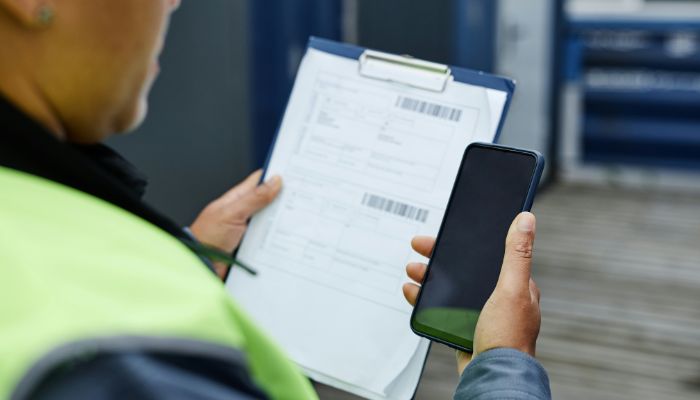
Yes, law enforcement agencies can track your phone without a warrant in certain scenarios, as determined by the jurisdiction’s prevailing laws. This occurs in a delicate balance between the need for public safety, aided by technological advancements, and the protection of civil liberties, as outlined in the Fourth Amendment and various acts like the Electronic Communications Privacy Act.
However, this practice has sparked debates on privacy rights and the proposed requirement for warrants when accessing phone records. To understand more about the intricacies of phone tracking, the current legislation, and how to protect your privacy, it’s vital to further inquire and stay informed.
Understanding Phone Tracking Basics
When it comes to understanding phone tracking basics, three key points come to the fore. To learn more, explore the legal ways police track phones.
Firstly, the balance between privacy rights and surveillance technology is delicate. Individuals want security, but not at the expense of their privacy. However, law enforcement argues that this technology is essential for maintaining public safety.
Secondly, the Fourth Amendment, which guards against unreasonable searches and seizures, is central to this debate. Law enforcement can exploit loopholes in the legislation, allowing them to track phones without a warrant. This action raises questions about the constitutionality of such practices.
Lastly, the nature of digital evidence is complex. Phone data can provide crucial evidence in criminal investigations. Yet, the methods of obtaining this evidence must respect an individual’s privacy rights.
Current Laws on Phone Surveillance

Navigating from the complexity of phone tracking basics, we turn our focus to the existing laws on phone surveillance. These laws strike a delicate balance between privacy rights and government oversight. They aim to delineate the legal boundaries within which surveillance technology operates, ensuring data protection for citizens.
- The Fourth Amendment: This constitutional provision protects individuals from unreasonable searches and seizures. It requires law enforcement agencies to obtain a warrant, based on probable cause, before conducting any search or seizure. This legal principle sets a high bar for police to justify their use of surveillance technology.
- The Electronic Communications Privacy Act (ECPA): Enacted in 1986, the ECPA extends the government’s wiretapping and electronic eavesdropping regulations to digital and wireless communications. It provides legal boundaries for government surveillance, requiring a court order or subscriber consent for access to electronic communications.
- The USA Patriot Act: Passed after the 9/11 terrorist attacks, this law expanded the government’s surveillance capabilities. It allows for roving wiretaps, access to business records, and surveillance of ‘lone wolves’—individuals suspected of terrorist-related activities not linked to terrorist groups.
These laws form the current framework for phone surveillance, providing privacy rights while ensuring government oversight in the interest of national security.
Warrantless Phone Tracking: Yes or No?
The debate surrounding warrantless phone tracking is a contentious one, stirring deep concerns about personal privacy and national security. Privacy rights advocates argue that the practice infringes on individual freedoms. They say it breaches data protection policies and exceeds constitutional limits.
Law enforcement agencies, however, argue the opposite. They assert that surveillance technology is a crucial tool for ensuring national security. They maintain that warrantless phone tracking can aid in preventing terrorist attacks and solving criminal cases, thus protecting the public.
Yet, critics counter-argue. They insist that the same goals can be achieved without violating privacy rights. They propose that law enforcement should be required to obtain a warrant before accessing an individual’s phone records.
The debate is complex and multifaceted. It pits the need for national security against the right to privacy, data protection, and constitutional limits.
The question remains: Should law enforcement have unrestricted access to surveillance technology to track phones without a warrant? As we navigate this digital age, it is a question we must answer carefully, balancing the scales of civil liberties and public safety.
Instances of Legal Warrantless Tracking

Despite the controversy around the subject, there exist instances where law enforcement agencies can legally track phones without a warrant. This has been made possible by technology advancements, however, it raises various privacy implications that have sparked concerns about civil liberties among the public. To understand how long these processes can take, explore the police phone tracking process time.
- Exigent Circumstances: Law enforcement can use real-time tracking in situations where there is imminent danger to public safety or a risk of evidence destruction. The exigency must be real, immediate, and significant.
- Consent: If a person voluntarily provides consent to their phone being tracked, a warrant is not required. This can occur during routine investigations or when someone is reported missing.
- Third-Party Doctrine: Information shared with third parties, such as service providers, is not protected by the Fourth Amendment. This allows police to request data from these entities without a warrant.
While these instances are legal, they’ve stirred public perception, leading to debates on the necessity to balance security and privacy. The advent of newer technologies is continually reshaping this landscape, further emphasizing the need for clear, concise, and precise laws to protect civil liberties while aiding law enforcement.
Protecting Your Phone From Unauthorized Tracking
In the realm of modern communication, protecting your phone from unauthorized tracking becomes paramount. Privacy protection is a fundamental right, and understanding the ways to bolster your digital security is key. By taking proactive measures, you can avoid becoming a victim of unwarranted location tracking.
- First, become aware of the tracking legality in your jurisdiction. Some regions have stringent laws on phone tracking, which protects your privacy rights. Familiarize yourself with these laws and know when your rights are infringed upon.
- Next, limit the number of apps with access to your location data. Many applications request access to this information, but few genuinely need it. Be selective and grant permissions wisely.
- Moreover, switch off your location services when not in use. This simple action can drastically reduce the risk of location tracking.
- Lastly, keep your phone updated. Regular software updates often include security enhancements that protect against unauthorized tracking.
Potential Consequences of Illegal Tracking

While taking measures to protect your phone from unauthorized tracking is vital, it’s equally important to understand the possible ramifications of illegal tracking. Privacy violations are a significant consequence of unlawful tracking, often leading to unwarranted intrusions into personal lives. Technological advances can be a double-edged sword, providing both protection and opportunities for abuse.
Legal implications are critical to consider. Unlawfully obtained evidence can lead to a compromised judicial process, potentially rendering evidence inadmissible. Ethical concerns arise when law enforcement oversteps boundaries, potentially damaging public trust.
Accountability measures are crucial to curb illegal tracking, but their effectiveness depends on robust implementation and stringent oversight.
The consequences of illegal tracking can be summarized as follows:
- Privacy Violations: Unwanted intrusions into personal affairs and private information.
- Legal Implications: The potential for compromised judicial proceedings due to unlawfully obtained evidence.
- Ethical Concerns: Erosion of public trust in law enforcement due to perceived overreaching.
Understanding these consequences is imperative to fully appreciate the seriousness of illegal tracking, and to encourage proactive measures to prevent such privacy infringements.
Striking a Balance: Security Vs Privacy
Striking the ideal balance between security and privacy often resembles walking a tightrope. On one side, government surveillance aims to ensure public safety. On the other, privacy rights demand respect and protection.
Technological advancements have complicated this balance. Sophisticated tracking tools, capable of detailed surveillance, are now accessible to law enforcement. These advancements can bolster public safety, aiding in swift crime resolution. However, they also raise critical concerns about privacy.
Privacy rights, enshrined in our laws, are fundamental to our society. Citizens should feel secure, not just from crime, but from unwarranted intrusion into their lives. Any breach of these rights can erode public trust, leading to societal unrest.
Government surveillance, if unchecked, can easily slip into invasive territory. The legal implications of overstepping bounds are serious, including potential lawsuits and policy changes.
Conclusion
The legal framework governing phone tracking by law enforcement agencies is complex and evolving. While warrantless tracking is generally seen as invasive, there are circumstances where it’s legally justifiable. Safeguarding one’s phone against unauthorized tracking is crucial. The challenge remains in striking a balance between security needs and privacy rights, as both are essential in a democratic society. Ongoing discourse and legislative reviews are necessary for a fair and effective surveillance system.